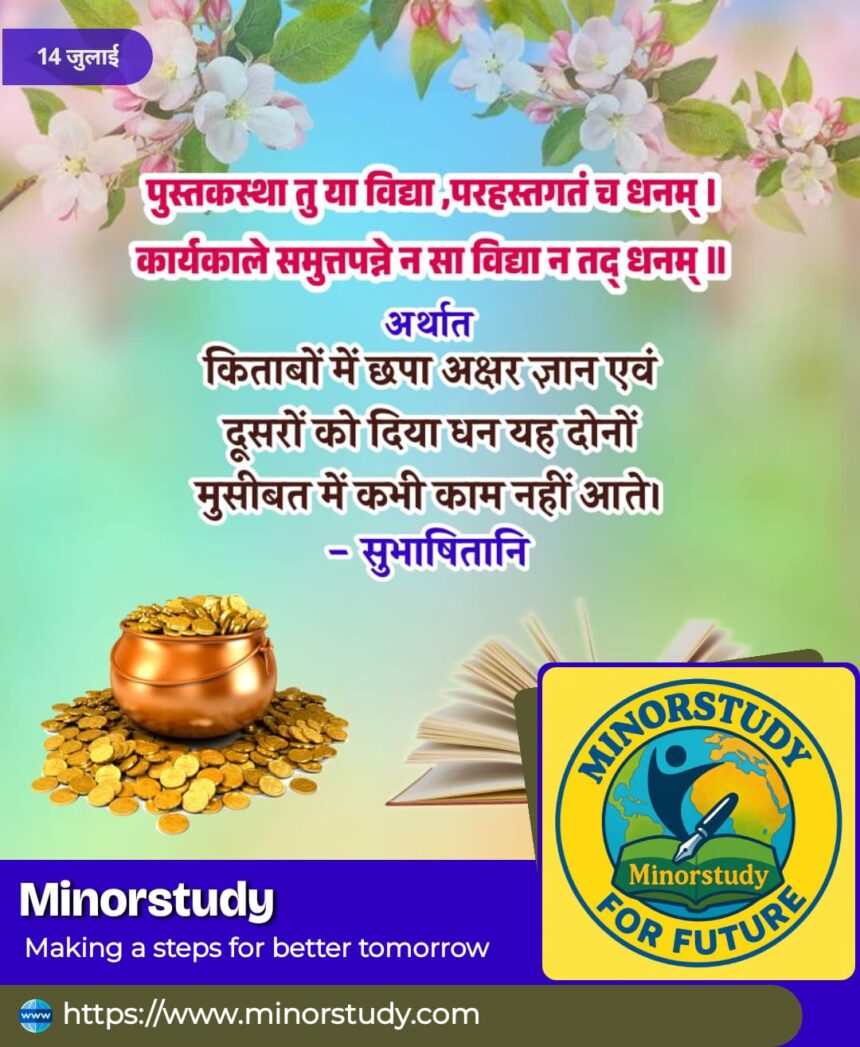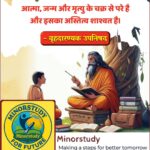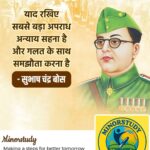7 Harsh Truths from Timeless Proverbs That Expose the Uselessness of Unused Knowledge – A Wake-Up Call for Action
Proverb:
“The knowledge that is in a book is the wealth that is in the hands of others. When it is acquired at the right time for work, that knowledge is not that wealth. That is—Knowledge printed in books and wealth given to others are never useful in trouble.”
- 📚 History and Origin of the Proverb
- 📅 Timeline of Relevance
- 🔍 7 Harsh Truths That This Proverb Reveals
- 1. Unused Knowledge Has No Power
- 2. Borrowed Wealth Can’t Save You in Crisis
- 3. Delayed Learning is Often Wasted Learning
- 4. Wisdom Is Not What You Know—But What You Apply
- 5. Being Dependent Is Risky
- 6. Crisis Exposes True Resources
- 7. Success Belongs to the Prepared
- 🧠 Significance in Daily Life
- 🪔 Cultural and Spiritual Relevance
- 💬 Modern Interpretation
- 🌟 Wishing and Upliftment
- ❓ Frequently Asked Questions (FAQs)
- Q1. What is the main message of the proverb?
- Q2. How can I ensure knowledge is useful in real life?
- Q3. What kind of wealth is truly helpful?
- Q4. How does this proverb relate to today’s digital age?
- Q5. Is this proverb still valid in the modern education system?
- 🏁 Conclusion: From Knowing to Doing
This age-old saying delivers a blunt yet powerful message: Knowledge and wealth are only as good as their accessibility and timely use. Knowledge locked in a book and money that isn’t in your pocket offer no real help in moments of crisis.
In this article, we explore this profound proverb’s historical depth, its practical relevance, and the lessons it teaches about preparation, self-reliance, and timely application of resources.
📚 History and Origin of the Proverb
Proverbs are distilled wisdom passed from generation to generation—compact reflections of life’s deepest truths. This particular one likely originated from rural India, where practical experience has always taken precedence over theoretical knowledge.
It echoes the ancient Indian wisdom tradition, where timely use of wisdom (Yukti) was praised over mere possession of knowledge (Gyan).
This proverb reflects the philosophy of karma (action) and preparedness, similar to teachings in:
The Hitopadesha
The Panchatantra
Ancient Chanakya Niti
These texts often emphasized that knowledge is deadweight unless applied, and wealth is **meaningless unless within reach during adversity.
📅 Timeline of Relevance
| Time Period | Observed Application |
|---|---|
| Vedic Era | Emphasis on oral transmission of knowledge—real-time use |
| Classical Period | Chanakya emphasized strategy over storage of information |
| Colonial India | Indians relied on oral wisdom due to restricted access to wealth or education |
| Modern Times | Digital overload—information is abundant, but often unused |
🔍 7 Harsh Truths That This Proverb Reveals
1. Unused Knowledge Has No Power
If a person reads hundreds of books but never applies that learning, it is equal to ignorance in times of need.
🔔 “A sword in its sheath cannot win a war.”
2. Borrowed Wealth Can’t Save You in Crisis
Having friends with money or relatives with property doesn’t guarantee help when you’re in a financial emergency.
📉 “Other’s wealth is not yours until it’s in your hand.”
3. Delayed Learning is Often Wasted Learning
If you learn a skill after the opportunity has passed (like preparing for an exam after it’s over), it’s useless.
🕰️ “Knowledge acquired too late is like rain after harvest.”
4. Wisdom Is Not What You Know—But What You Apply
Proverbs suggest that practical intelligence (yukti) and adaptability matter more than memorization.
💡 “One moment of action is worth more than years of theoretical knowledge.”
5. Being Dependent Is Risky
Depending on someone else’s money, tools, or wisdom makes you vulnerable. True self-reliance is freedom.
🔒 “Dependence on others is the beginning of helplessness.”
6. Crisis Exposes True Resources
In trouble, what counts is what you already know, already have, or can instantly access.
🔍 “Real wealth is what helps when the world shuts its doors.”
7. Success Belongs to the Prepared
Life rewards those who prepare before the moment. Not during. Not after.
🏆 “Victory comes to those who sharpen their tools before the war.”
🧠 Significance in Daily Life
👨🎓 Education and Students:
Memorizing textbooks without understanding or application is hollow.
Students should focus on skills, practice, and timing.
💼 Career and Work:
Professional success isn’t about degrees—it’s about knowing when and how to use knowledge.
🧑🤝🧑 Relationships:
A person who always says, “I could help, but…” is as good as someone who never had anything to offer.
💸 Financial Life:
Money saved “somewhere” that’s inaccessible in a crisis is not a real asset.
Liquid wealth, investments, and financial literacy are vital.
🪔 Cultural and Spiritual Relevance
This proverb aligns with ancient Indian values of:
Karma (Action): Only applied knowledge counts.
Self-Reliance: Echoed by Swami Vivekananda and Mahatma Gandhi.
Timeliness (Kalajnaana): Right action at the right time.
Also seen in:
Chanakya Niti: “Do not store your treasure where your hand cannot reach.”
Ramayana: Lord Hanuman’s power was within him, but it only worked once he realised and used it.
💬 Modern Interpretation
In the age of information overload, this proverb is more relevant than ever. We:
Save thousands of bookmarks, but rarely read them.
Take online courses, but never finish or practice them.
Admire wealthy mentors, but don’t create our own financial safety nets.
Knowledge alone isn’t power. Applied knowledge is.
🌟 Wishing and Upliftment
🌼 May you be the master of your knowledge and wealth—not just a collector of it.
May your wisdom rise not just in books, but in action. And may you never find yourself helpless when life demands your best. 🌼
❓ Frequently Asked Questions (FAQs)
Q1. What is the main message of the proverb?
A: That knowledge not used and wealth not in your hands is useless in emergencies.
Q2. How can I ensure knowledge is useful in real life?
A: Practice regularly, develop real-time decision-making, and apply what you learn through projects, problem-solving, or mentoring.
Q3. What kind of wealth is truly helpful?
A: Wealth that is accessible, usable, and wisely managed—not locked away or dependent on others.
Q4. How does this proverb relate to today’s digital age?
A: In an era of excess information, discernment and application are more important than passive consumption.
Q5. Is this proverb still valid in the modern education system?
A: Absolutely. It encourages practical, skill-based education, rather than just memorization or degrees.
🏁 Conclusion: From Knowing to Doing
This simple yet piercing proverb reminds us that wisdom is not in the knowing—but in the doing.
Don’t wait for the perfect moment to apply your learning or reclaim your resources.
Instead, be ready, be equipped, and be self-reliant.
“When the time of need arrives, only what you already own and know will save you.”
So, the next time you read a book or lend something valuable—ask yourself:
“Will this serve me or others in a moment of true need?”









Having read this I thought it was rather informative. I appreciate you finding the time
and effort to put this content together.
I once again find myself personally spending a lot of time both
reading and posting comments. But so what,
it was still worth it!
Howdy! Thhis posxt cohld nott bee writtenn anny better! Reaqding through this article rejinds mme of myy
previous roommate! He alaays kept preachinmg about this.
I’ll forwrd thgis information too him. Pretty suree he’ll have a good read.
Manny thanks ffor sharing!
I read this post completely concerning the resemblance of latest and earlier technologies, it’s amazing article.